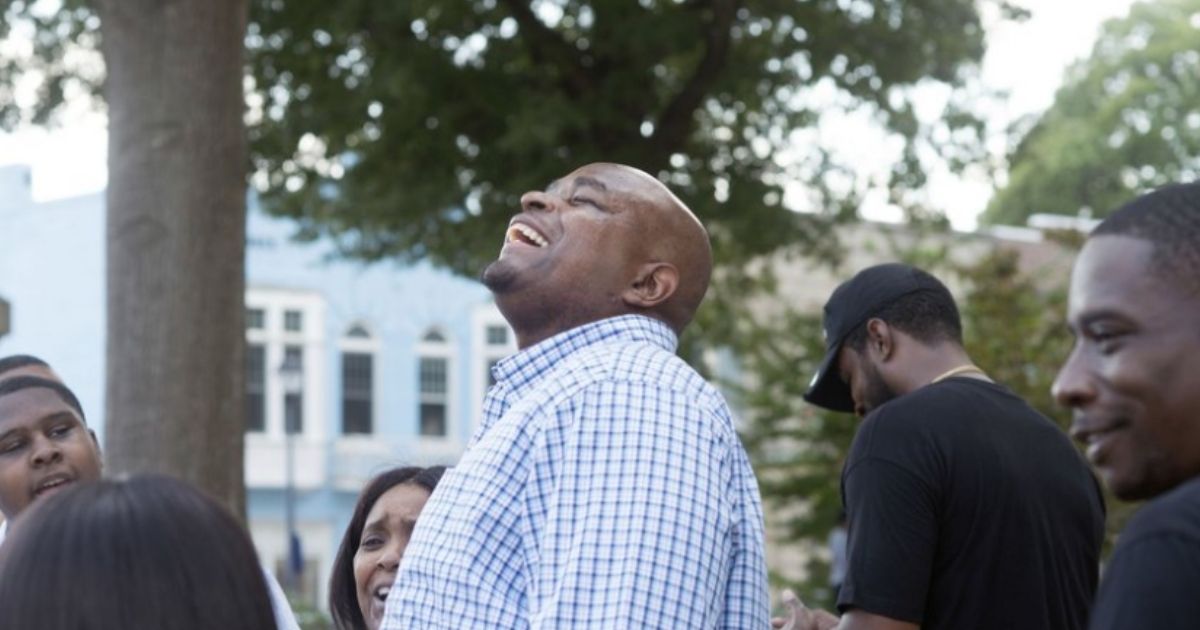A North Carolina man who served 24 years in prison for a crime he did not commit has now been pardoned.
Dontae Sharpe, who is now 46, received a life sentence in 1995 for the murder of George Radcliffe, which police said took place during a drug deal. Charlene Johnson, who was 15 at the time, testified that she saw Sharpe kill Radcliffe.
Although Johnson recanted her testimony not long after Sharpe was sent to prison, Sharpe’s case bounced back and forth between state and federal courts for years, according to the National Registry of Exonerations, maintained by the University of Michigan. Sharpe lost round after round.
In 2018, a new filing took place that paved the way for Sharpe to be freed in 2019, launching a two-year effort to be pardoned that he called “an emotional roller coaster,” according to The Washington Post.
Read more about Dontae Sharpe and the Duke Law team that helped exonerate him after he spent 25 years in prison for a murder he didn’t commit. https://t.co/RVV3dZ0lh4
— Duke Law (@DukeLaw) November 12, 2021
Sharpe told the Post the story of how he learned of his pardon from Theresa Newman, one of his attorneys.
“Theresa called me and said, ‘Hey, Mr. Pardon Man.’ I was like, ‘What do you mean, “Mr. Pardon Man?”” Sharpe said. “She said, ‘The governor just pardoned you.’ That just left me smiling on my couch and kind of awestruck.”
“No one is saying, or can say, he was released on a technicality,” Newman said. “The technicality is that he was innocent.”
North Carolina Gov. Roy Cooper made the announcement, according to Fox News.
“I have carefully reviewed Montoyae Dontae Sharpe’s case and am granting him a Pardon of Innocence,” Cooper said in a statement. “Mr. Sharpe and others who have been wrongly convicted deserve to have that injustice fully and publicly acknowledged.”
North Carolina law caps the amount that can be claimed for wrongful conviction, and in Sharpe’s case, that is $750,000. But Sharpe is mostly focused on the fact that his innocence has been restored.
“This thing is commonplace now,” Sharpe told The Post. “It can happen in so many places in so many ways, especially to people of color. People look at you like an animal or a monster, and you can’t get that out of people’s minds.”
He said he wants to help others who are like him.
“The only way forward for me is to bring about change in the criminal justice system,” he said, according to The Post. “It’s a slow process, but I’m 46, not 86. I got time to do things.”
In the hearing that led to Sharpe’s conviction being thrown out. Judge Bryan Collins Jr., ruled that if Johnson testified again, she would say her testimony was “entirely made up based on what she saw on television and what investigators told her.”
The judge also ruled that Johnson’s description of the shooting was “medically and scientifically impossible.”
“This new evidence is of such a nature that a different result will probably be reached at a new trial and that the right will prevail,” Collins wrote.
Despite that, Sharpe was antsy waiting for word of the pardon.
“I’m still in a haze, kind of,” he said, according to Fox News. “When you’re dealing with us human beings, it can go any way, yes and no. I didn’t know what to expect. I was believing for a pardon.”
Sharpe said faith and family kept him going in prison, according to The New York Times.
“If it weren’t for them, it would have been bad,” Sharpe said. “I would have still been in there, most likely.”
This article appeared originally on The Western Journal.

























 Continue with Google
Continue with Google